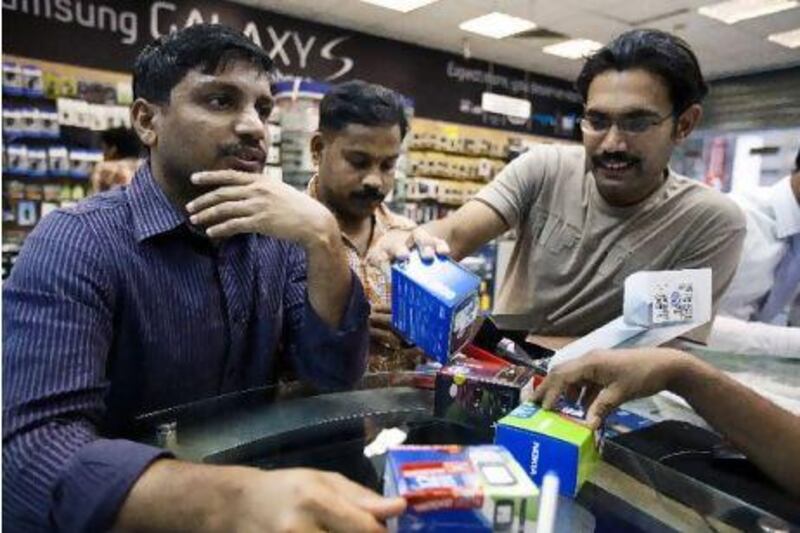The basket of goods used to calculate the UAE's consumer price inflation is to be updated to give less weighting to property and more value to electronics and other goods.
Officials say the overhaul of the consumer price index will reflect changes in spending patterns and in the overall economy since the global financial crisis.
It will also take into account the greater importance of technologies such as mobile phones in recent years.
"The system will stay the same, but the weights within the basket will be different as the economy has changed since the last data was taken," said a spokesman from the National Bureau of Statistics(NBS), who asked not to be identified.
The IMF has encouraged the country to regularly update inflation data to ensure their accuracy and relevance as important economic indicators.
Elements for the current basket have been fixed since 2007. But the economy has changed shape dramatically since then.
Housing services, made up of rental and utility bills, account for 39 per cent of the basket. Food prices account for 13.9 per cent of the index.
At the time, the weightings reflected a booming economy as prices for property and for oil and other commodities soared. As a result, inflation climbed to 11 per cent in 2007.
Officials say the weighting allocated to some groups is no longer accurate. For example, property prices have slid by more than half as credit dried up during the financial downturn.
The costs of other items have risen. Electricity and water bills have increased, as have fuel costs after the Government raised petrol prices twice last year. Education fees have edged up, too.
In addition, global food prices surged 15 per cent between October and January as bad harvests in important exporting nations put pressure on supplies.
The IMF expects inflation to reach 4 per cent this year.
"This is a good step as clearly, since the last survey, the country's demographics and spending patterns have changed," said Khatija Haque, an economist and the vice president of research at Shuaa Capital.
"Most people are paying less housing rent, and that will have a huge impact on where else they spend their money," she said.
Spending differences between nationals and expatriates and across emirates and income groups needed to be taken into account under the overhaul, Ms Haque said.
The NBS will update the framework in the middle of 2013 after surveying household income and expenditure starting next March.
"Some items will go out of the basket and some new items will come in. Mostly, the changes in the basket will reflect fast-emerging items like mobiles, TVs and some textiles," said the NBS official. "Property weighting may go down as rent is different from 2007."
Currently, items are split into 12 groups: food and soft drinks; beverages and tobacco; textiles, clothing and footwear; housing services; furniture and household goods and services; medical care; transport; communications; recreation and culture; education; restaurants, cafes and hotels; and miscellaneous goods and services.
Weddings, medical tests, water consumption, tyres and liquid fuel are among the varied items whose costs are included under the groupings.






